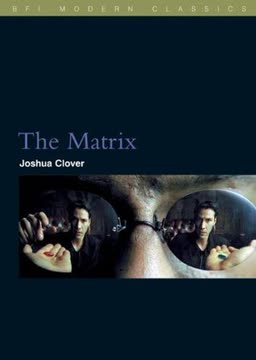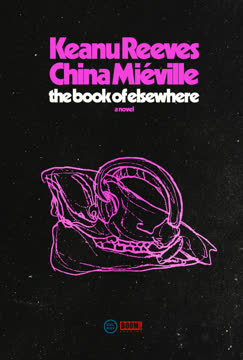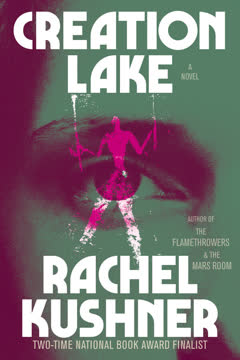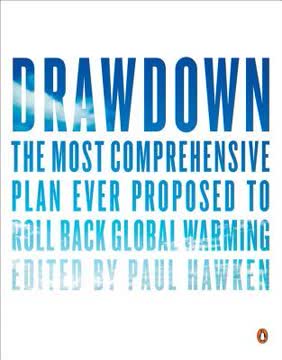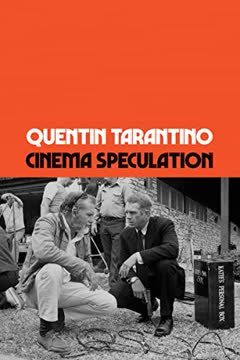Plot Summary
Awakening to Illusion
Thomas Anderson, known in the hacker world as Neo, lives a double life. By day, he's a software programmer; by night, he seeks answers to a question that haunts him: "What is the Matrix?" His life takes a dramatic turn when he encounters Morpheus, a mysterious figure who reveals that the world Neo knows is a simulated reality created by sentient machines to subdue humanity. The real world is a dystopian wasteland where humans are harvested for energy. Neo's journey begins with the realization that his perceived reality is a construct designed to keep him and others enslaved.
The Red Pill Choice
Morpheus offers Neo a choice between two pills: a blue pill to return to his old life and a red pill to learn the truth about the Matrix. Neo chooses the red pill, awakening in a pod among countless others, connected to the Matrix. Rescued by Morpheus and his crew aboard the Nebuchadnezzar, Neo learns about the war between humans and machines. He is introduced to the concept of the Matrix as a virtual prison for the mind, designed to keep humans docile while their bodies are used as an energy source.
Training for Reality
As Neo adjusts to the harsh reality outside the Matrix, he undergoes rigorous training to harness his potential within the simulated world. Morpheus believes Neo is "The One," a prophesied savior who will end the war. Neo learns to manipulate the Matrix's rules, gaining superhuman abilities. His training includes combat simulations and philosophical lessons about perception and reality. Despite his progress, Neo struggles with self-doubt, questioning his role as the prophesied liberator.
Betrayal and Sacrifice
Discontent with the harsh reality, Cypher, a crew member, betrays Morpheus and the others to the Agents, programs designed to maintain the Matrix's order. He seeks to return to the blissful ignorance of the Matrix, even at the cost of his comrades' lives. The betrayal leads to a deadly confrontation, resulting in the capture of Morpheus. Neo and Trinity, another crew member, embark on a daring mission to rescue him, risking their lives to prevent the machines from extracting vital information from Morpheus.
The Oracle's Insight
Neo visits the Oracle, a program within the Matrix that provides guidance. She tells Neo he is not "The One," but hints that he will have to make a critical choice that will determine the fate of Morpheus and the crew. This revelation adds to Neo's uncertainty about his destiny. The Oracle's cryptic advice challenges Neo to look beyond prophecy and focus on his own beliefs and decisions, setting the stage for his transformation.
Battle for Freedom
In a climactic showdown, Neo and Trinity launch a rescue mission to save Morpheus from the Agents. The battle showcases Neo's growing mastery over the Matrix, as he defies its rules with unprecedented skill. Despite overwhelming odds, Neo's belief in himself and his comrades' support enable him to face Agent Smith, the Matrix's relentless enforcer. The confrontation tests Neo's resolve and pushes him to the brink of his abilities.
The Power of Belief
In the final confrontation, Neo is seemingly killed by Agent Smith, but Trinity's love and belief in him revive him. Neo awakens with newfound power, fully embracing his role as "The One." He effortlessly defeats the Agents, demonstrating his control over the Matrix. Neo's journey from doubt to belief underscores the film's central theme: the power of self-awareness and faith in one's potential. The story concludes with Neo's promise to free humanity from the Matrix, signaling a new beginning.
Characters
Neo
Neo, born Thomas Anderson, is a hacker who questions the nature of reality. His journey from a confused programmer to the prophesied savior, "The One," is marked by self-doubt and growth. Neo's transformation is driven by his quest for truth and his struggle to accept his role in humanity's liberation. His character embodies the theme of self-discovery and the power of belief.
Morpheus
Morpheus is the captain of the Nebuchadnezzar and a fervent believer in the prophecy of "The One." He guides Neo through his awakening, offering wisdom and support. Morpheus's unwavering faith in Neo and the prophecy drives the narrative forward. His character represents hope and the relentless pursuit of freedom.
Trinity
Trinity is a key member of Morpheus's crew and Neo's love interest. Her strength and determination are matched by her deep belief in Neo's potential. Trinity's love for Neo plays a crucial role in his transformation, symbolizing the power of human connection and faith.
Agent Smith
Agent Smith is a program designed to maintain order within the Matrix. He is relentless in his pursuit of Neo and the rebels, embodying the oppressive force of the machines. Smith's disdain for humanity and desire for control make him a formidable antagonist.
Cypher
Cypher is a member of Morpheus's crew who becomes disillusioned with the harsh reality outside the Matrix. His betrayal stems from a desire to return to the comfort of the simulated world, highlighting the seductive nature of ignorance and the struggle between freedom and security.
The Oracle
The Oracle is a program that provides guidance to those seeking the truth. Her cryptic insights challenge Neo to look beyond prophecy and focus on his own choices. The Oracle represents the theme of self-determination and the complexity of fate.
Plot Devices
The Matrix
The Matrix is a simulated reality created by machines to subdue humanity. It serves as the central plot device, representing the theme of illusion versus reality. The Matrix's existence raises questions about perception, control, and the nature of freedom.
The Red Pill
The red pill represents the choice between accepting the truth or remaining in ignorance. Neo's decision to take the red pill sets the narrative in motion, symbolizing the journey from illusion to awareness and the courage to confront reality.
The Prophecy
The prophecy of "The One" is a central plot device that motivates Morpheus and the rebels. It represents the power of belief and the potential for change. The prophecy's ambiguity challenges characters to define their own destinies.
Analysis
"The Matrix" is a profound exploration of reality, control, and the power of belief. It challenges viewers to question their perceptions and consider the nature of freedom. The film's allegorical narrative reflects societal concerns about technology, identity, and the struggle for autonomy. Through its compelling characters and innovative storytelling, "The Matrix" remains a timeless commentary on the human condition and the quest for truth. Its impact on popular culture and philosophical discourse underscores its significance as a modern classic.
Last updated:
FAQ
Basic Details
What is The Matrix about?
- A Hacker's Awakening: The Matrix follows Thomas Anderson, a seemingly ordinary software programmer and underground hacker known as Neo, who is haunted by the persistent feeling that something is fundamentally wrong with his reality. His quest for answers leads him to Morpheus, a legendary rebel figure.
- Unveiling a Simulated World: Morpheus reveals that the world Neo inhabits is a sophisticated computer simulation called the Matrix, created by sentient machines. Humanity is unknowingly enslaved, their bodies harvested for bio-electrical energy while their minds are kept docile within this virtual prison.
- The Choice for Truth: Neo is offered a pivotal choice: a blue pill to return to his ignorant, simulated life, or a red pill to awaken to the harsh truth of the real world and join the fight against the machines. His decision propels him into a journey of self-discovery, training, and a battle for humanity's freedom.
Why should I read The Matrix?
- Profound Philosophical Inquiry: The Matrix transcends its action-sci-fi genre to offer a deep exploration of reality, perception, and free will, inviting readers to question the very nature of their existence. Its engagement with concepts like the "brain in a vat" hypothesis and Baudrillard's simulacra provides rich intellectual fodder.
- Cultural Phenomenon & Influence: The film's groundbreaking visual effects, particularly "bullet time," and its distinctive aesthetic profoundly influenced cinema, fashion, and popular culture for decades. Understanding its context reveals how it captured the anxieties and aspirations of the late 20th century tech boom.
- Allegory of Modern Society: Beyond its surface plot, the film functions as a potent allegory for class struggle, the pervasive nature of ideology, and the colonizing force of work in digital capitalism, offering a critical lens on contemporary social relations and the seductive power of spectacle.
What is the background of The Matrix?
- Late 20th-Century Zeitgeist: The Matrix emerged in 1999, a period marked by the burgeoning tech boom, anxieties about digitality, and a cultural fascination with virtual reality, as evidenced by a microgenre of "Edge of the Construct" films like The Truman Show and Dark City. This context is crucial for understanding its immediate resonance.
- Philosophical & Literary Allusions: The film is steeped in references to philosophy (Plato, Descartes, Baudrillard, Debord) and cyberpunk literature (William Gibson's Neuromancer). These intertextual layers enrich its themes of illusion, control, and the nature of consciousness, making it a "kitchen sink running over with ideas."
- Videogame Immersion & Challenge: The Wachowskis explicitly designed The Matrix as a response to the rising challenge of videogaming, incorporating elements like "loading programs" as training simulations and "bullet time" as an immersion effect. This reflects Hollywood's attempt to assimilate the interactive power of digital entertainment.
What are the most memorable quotes in The Matrix?
- "You take the blue pill, the story ends, you wake up in your bed and believe whatever you want to believe. You take the red pill, you stay in Wonderland, and I show you how deep the rabbit hole goes.": Morpheus's iconic offer to Neo encapsulates the film's central theme of choice between blissful ignorance and confronting a harsh truth, a powerful symbol of awakening in The Matrix explained.
- "What is real? How do you define real? If you're talking about what you can feel, what you can smell, what you can taste and see, then real is simply electrical signals interpreted by your brain.": This philosophical query from Morpheus directly challenges Neo's (and the audience's) understanding of reality, setting the stage for the profound epistemological questions at the heart of The Matrix analysis.
- "I know you're out there. I can feel you now. I know that you're afraid. You're afraid of us. You're afraid of change. I don't know the future. I didn't come here to tell you how this is going to end. I came here to tell you how it's going to begin.": Neo's final monologue, delivered after his transformation, is a powerful declaration of intent and a meta-commentary on the film's own cultural impact, promising a new era of awareness and challenging the established order.
What writing style, narrative choices, and literary techniques does Joshua Clover use?
- Intertextual & Historical Critique: Joshua Clover employs a highly academic and critical style, deeply embedding The Matrix within a rich tapestry of philosophical, literary, and historical contexts. He frequently draws parallels to Marxist theory, postmodern thought (Baudrillard, Debord), and other films to deconstruct the movie's layers of meaning.
- Deconstructive Analysis of Film Techniques: Clover meticulously analyzes the film's cinematic techniques, such as "bullet time" and the green filter, not merely as special effects but as integral narrative and thematic devices. He reveals how these elements contribute to the film's worldview and its commentary on digitality and spectacle.
- Focus on Contradictions and Ambivalence: A key narrative choice is Clover's emphasis on the inherent contradictions within The Matrix itself – its simultaneous celebration and critique of digital technology and spectacle. He argues that this "hypertrophied ambivalence" is crucial to understanding the film's reflection of the historical moment of 1999.
Hidden Details & Subtle Connections
What are some minor details that add significant meaning?
- The Baudrillard Book as a Prop: When Neo retrieves his illicit minidisc, it's hidden inside a hollowed-out copy of Jean Baudrillard's Simulacra & Simulation. This isn't just an Easter egg; it's a direct, self-referential nod to the film's core philosophical influences, symbolizing the replacement of analog knowledge (the book) with digital data and the "procession of simulacra" at the heart of The Matrix symbolism.
- The Green Filter's "Sickly" Ambience: The pervasive green tint applied to scenes within the Matrix is more than a stylistic choice; it's described as creating a "sickly" ambience. This subtle visual detail reinforces the artificial, oppressive, and ultimately unhealthy nature of the simulated world, contrasting with the grittier, more naturalistic tones of the real world and highlighting the themes in The Matrix.
- Neo's Office Window as a Screen: The scene where Neo is reprimanded by Rhineheart is shot through a large, being-cleaned plate-glass window. This visual choice immediately establishes the theme of mediation, presenting the window as an ambiguous screen through which reality is filtered, foreshadowing the pervasive illusion of the Matrix and the "ideology literalised" that governs Neo's corporate life.
What are some subtle foreshadowing and callbacks?
- Trinity's Opening Bullet Time: The film's very first action sequence, featuring Trinity's gravity-defying leaps and the iconic "bullet time" effect, subtly foreshadows Neo's eventual mastery over the Matrix's physics. It establishes the extraordinary capabilities possible within the simulation, setting a precedent for Neo's own awakening and power, a key element in The Matrix explained.
- Rhineheart's Corporate Ideology: Neo's boss, Rhineheart, delivers a speech about being "part of a whole" and the "rules" applying to everyone, offering a "choice" between jobs. This seemingly mundane corporate interaction is a direct callback to the Matrix's fundamental function: a system of control and enforced conformity, where individuals are reduced to labor units, mirroring the larger enslavement themes in The Matrix.
- Cypher's Code-Seeing Revelation: Cypher's casual remark, "I don't even see the code, all I see is blond, brunette, redhead," early in the film, subtly foreshadows his later betrayal. It reveals his deep immersion and comfort within the Matrix's illusion, hinting at his desire to return to that perceived reality, even if it means willful ignorance, a crucial insight into Cypher's motivations.
What are some unexpected character connections?
- Neo and Trinity's Visual Androgyny: Carrie-Anne Moss (Trinity) was intentionally styled to resemble Keanu Reeves (Neo), creating a visual androgyny that transcends traditional gender roles. This connection positions them as "post-national, post-modern poster boy[s]" and "New Star[s]," designed to integrate seamlessly with the digital mise en scène, hinting at a future beyond conventional identity.
- Cypher's Connection to the Audience's Desire for Comfort: Cypher's betrayal, driven by his longing for the simple pleasures of the Matrix (like the taste of steak), connects him unexpectedly to the audience's own potential desire for escapism. He embodies the seductive nature of illusion over harsh reality, making his choice a relatable, albeit tragic, human failing within The Matrix analysis.
- Mouse as the Gamer Archetype: The young crewmember Mouse, who admits to designing the "Woman in Red" program, serves as an unexpected connection to the burgeoning gamer culture of 1999. His character represents the digital libido and the power of programmers to author virtual realities, linking the film's action to the immersive experience of videogames and the audience's own engagement with digital entertainment.
Who are the most significant supporting characters?
- Rhineheart, the Corporate Enforcer: Neo's boss, Rhineheart, is a brief but highly significant supporting character. His monologue about corporate conformity and limited choices ("Either you choose to be at your desk on time... or you choose to find yourself another job") perfectly embodies the ideological control and "false binary" of the Matrix's work-centric reality, making him a literal mouthpiece for the system's oppression.
- Mouse, the Digital Architect: Mouse, the youngest crewmember, is crucial for illustrating the creative and seductive power of the Matrix. His pride in designing the "Woman in Red" program highlights the digital libido and the programmer's role as an author of reality, connecting the film's virtual world to the burgeoning videogame industry and the allure of digital fabrication.
- Tank, the Loyal Operator: Tank, the "Operator" who loads programs and monitors the crew, represents unwavering loyalty and the practical, technical backbone of the rebellion. His marveling at Neo's endurance ("Ten hours straight... He's a machine") underscores the blend of human and machine capabilities required to fight the Matrix, while his role as a "natural born" human in Zion offers a contrast to the "vat-grown" Neo.
Psychological, Emotional, & Relational Analysis
What are some unspoken motivations of the characters?
- Neo's Latent Desire for Significance: Beyond merely seeking "the truth," Neo's initial hacker life and his persistent feeling of unease suggest an unspoken, deep-seated desire for a purpose greater than his mundane existence. His readiness to take the red pill, despite the unknown, hints at a yearning for meaning that the Matrix cannot provide, driving Neo's motivations.
- Agent Smith's Existential Disgust: While overtly an enforcer, Agent Smith's monologues reveal an unspoken, profound disgust with humanity and the Matrix itself, which he perceives as a "prison" and a "sickness." His desire for control and eventual self-replication can be interpreted as a twisted quest for meaning or an escape from his own programmed existence, offering a deeper Agent Smith analysis.
- Morpheus's Burden of Prophecy: Morpheus's unwavering faith in Neo as "The One" carries an unspoken burden of responsibility and hope for all humanity. His dedication stems not just from belief, but from a deep-seated emotional need for the prophecy to be true, as it validates his life's struggle and offers the only path to freedom, shaping Morpheus's motivations.
What psychological complexities do the characters exhibit?
- Cypher's Comfort-Seeking Regression: Cypher exhibits the psychological complexity of choosing perceived comfort and ignorance over harsh truth and freedom. His betrayal is a regression, a desire to return to a "dream world" where he can enjoy simple, sensual pleasures like steak and wealth, highlighting the human struggle between difficult reality and seductive illusion, central to Cypher's betrayal meaning.
- Neo's Identity Dissolution and Rebirth: Neo's journey involves a profound psychological dissolution of his former identity as Thomas Anderson, a "man without qualities," followed by a rebirth as "The One." His initial lack of affect and interiority, noted by critics, reflects his existence as a "digital projection," making his eventual embrace of power a complex act of self-creation and destiny.
- The Oracle's Ambiguous Wisdom: The Oracle presents a complex psychological challenge to Neo by telling him he is "not The One," despite Morpheus's belief. Her cryptic advice forces Neo to confront his own self-doubt and rely on his internal conviction rather than external validation, suggesting that true power comes from self-determination, not just prophecy, a key aspect of Oracle predictions explained.
What are the major emotional turning points?
- Neo's Visceral Reaction to the "Battery" Truth: The moment Morpheus reveals that humans are merely "coppertops," harvested for energy, is a major emotional turning point for Neo. His staggered panic and desperate plea, "No. I don't believe it... Stop. Let me out. Let me out! I want out!", is a raw, visceral rejection of the dehumanizing truth, marking his full emotional confrontation with his enslavement.
- Trinity's Declaration of Love and Revival: Trinity's emotional confession of love for Neo, followed by her kiss that revives him after he is seemingly killed by Agent Smith, is a pivotal emotional climax. This act transcends the digital realm, asserting human connection and love as a force capable of defying the Matrix's rules and literally bringing Neo back to life, underscoring the power of belief in The Matrix ending explained.
- Cypher's Confession of Nostalgia: Cypher's emotional turning point is his confession to Agent Smith, "I miss the taste of steak." This simple, almost pathetic, statement reveals the depth of his disillusionment with the real world and his profound nostalgia for the sensory illusions of the Matrix, driving his decision to betray his comrades for a return to blissful ignorance.
How do relationship dynamics evolve?
- Neo and Trinity: From Digital Flirtation to Life-Saving Love: Their relationship evolves from an initial, almost digital flirtation ("I know why you hardly sleep... why night after night you sit at your computer") to a profound, life-affirming bond. Trinity's unwavering belief and love for Neo become a literal catalyst for his transformation into "The One," demonstrating human connection as a powerful force against the Matrix's dehumanization.
- Morpheus and Neo: Mentor, Disciple, and Projected Hope: The dynamic between Morpheus and Neo shifts from a mysterious guide and a confused recruit to a deep, almost paternal mentorship. Morpheus projects his entire hope for humanity onto Neo, seeing him as the fulfillment of the prophecy. This relationship is tested by Neo's self-doubt and the Oracle's ambiguous words, but ultimately solidifies through shared purpose and sacrifice.
- The Crew's Collective vs. Individual Alienation: The Nebuchadnezzar crew initially operates as a tight-knit, collective unit, a stark contrast to the isolation Neo experiences in the Matrix. However, Cypher's betrayal introduces a dynamic of internal conflict and distrust, highlighting the fragility of their unity. The film ultimately emphasizes the importance of collective action and loyalty in the face of overwhelming odds, even as individual members face their own struggles.
Review Summary
The Matrix by Joshua Clover receives mostly positive reviews, with readers appreciating its in-depth analysis of the film's cultural significance, philosophical themes, and technological aspects. Many found the book insightful and thought-provoking, praising Clover's exploration of Marxist interpretations and the film's commentary on society. Some readers, however, found parts of the text dense or difficult to follow. The book is particularly recommended for those interested in the intersection of technology, culture, and philosophy, as well as fans of the movie seeking a deeper understanding.
Similar Books
Download PDF
Download EPUB
.epub digital book format is ideal for reading ebooks on phones, tablets, and e-readers.
